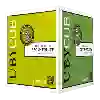
La Cave de MézinLe Fréchou Côtes de Gascogne Sec
This wine generally goes well with vegetarian, rich fish (salmon, tuna etc) or shellfish.
Food and wine pairings with Le Fréchou Côtes de Gascogne Sec
Pairings that work perfectly with Le Fréchou Côtes de Gascogne Sec
Original food and wine pairings with Le Fréchou Côtes de Gascogne Sec
The Le Fréchou Côtes de Gascogne Sec of La Cave de Mézin matches generally quite well with dishes of rich fish (salmon, tuna etc), shellfish or vegetarian such as recipes of risotto with fresh salmon and zucchini, mussels with beer or summer tuna quiche.
Details and technical informations about La Cave de Mézin's Le Fréchou Côtes de Gascogne Sec.
Discover the grape variety: Gros Manseng
Gros Manseng blanc is a grape variety that originated in France (Netherlands). It produces a variety of grape specially used for wine making. It is rare to find this grape to eat on our tables. This variety of grape is characterized by medium-sized bunches and small grapes. Gros Manseng blanc can be found in several vineyards: South-West, Languedoc & Roussillon, Cognac, Bordeaux, Armagnac, Provence & Corsica, Rhone valley, Loire valley, Savoie & Bugey, Beaujolais.
Informations about the La Cave de Mézin
The La Cave de Mézin is one of of the world's greatest estates. It offers 4 wines for sale in the of Côtes de Gascogne to come and discover on site or to buy online.
The wine region of Côtes de Gascogne
The wine region of Côtes de Gascogne is located in the region of Comté Tolosan of Vin de Pays of France. Wineries and vineyards like the Domaine Sichel or the Domaine Haut-Marin produce mainly wines white, red and sweet. The most planted grape varieties in the region of Côtes de Gascogne are Colombard, Gros Manseng and Merlot, they are then used in wines in blends or as a single variety. On the nose of Côtes de Gascogne often reveals types of flavors of red fruit, tangerine or jam and sometimes also flavors of watermelon, pomegranate or lemon grass.
The wine region of Comté Tolosan
Comte Tolosan is a PGI title that covers wines produced in a large area of Southwestern France. The PGI basin encompasses 12 administrative dePartments and is home to a wide range of appellations d'origine contrôlée (AOC) such as Jurançon, Cahors and Armagnac. The IGP label provides a geographical classification for wines that are not classified for AOC level appellations due to Grape variety or winemaking style. The region is part of the Aquitaine basin - the plains that lie between the Pyrenees, the Massif Central and the Atlantic Ocean to the west.
The word of the wine: Clear
Said of a wine that is clear and brilliant in colour and contains no suspended matter.










